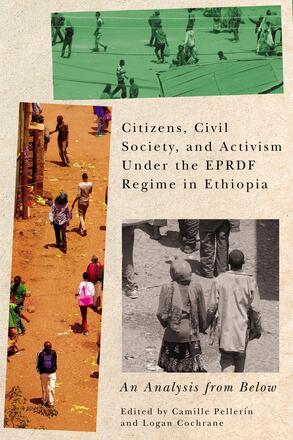
Citizens, Civil Society, and Activism under the EPRDF Regime in Ethiopia
An Analysis from Below
Analyzing state-society relations in authoritarian settings from co-optation to contestation.
Description
In 2014–15, the Ethiopian government, together with many academics and observers, was surprised by the outbreak of anti-government protests, as large-scale public contestation of the Ethiopian People’s Revolutionary Democratic Front (EPRDF) had been largely absent in the regime’s history. The dominant narrative about the EPRDF regime was that it was a top-down government, using authoritarian methods to ensure the population abided by its visions and directives, and describing its role in paternalistic ways, such as being the protector and guardian of the people.
Changing this narrative, Citizens, Civil Society, and Activism under the EPRDF Regime in Ethiopia considers how citizens and civil society expressed their interests and exerted their agency in an authoritarian setting. Focusing on the EPRDF regime over a period of three decades up to 2019, the book explores civic activism in Ethiopia, presenting diverse examples of how citizens have (re)shaped the country. Challenging state-centric readings of state-society relations under EPRDF governance, this collection provides a counternarrative that emphasizes the role and agency of citizens and civil society. The contributing authors draw on a heuristic analytical framework that examines different types of interactions between civil society and state actors (co-optation, co-operation, coexistence, and contestation) and captures the ways in which civil society actors make their voices heard.
At a time when authoritarian forms of governance are increasingly prevalent across the world, this critically important collection offers insight into how citizens claim their agency and challenge state power in apparently top-down contexts.
Reviews
“This crucial volume addresses a clear gap in the existing literature by thoroughly studying Ethiopian civil activism in recent years. The book comes at an important moment of instability and change in Ethiopian politics, providing a wide range of extremely illuminating case studies of civil society activity and the constraints it has faced. It is particularly pleasing to see so many excellent Ethiopian authors contributing chapters, something that is unfortunately uncommon in international publications.” Tom Lavers, University of Manchester and editor of The Politics of Distributing Social Transfers: State Capacity and Political Contestation in Sub-Saharan Africa and South Asia